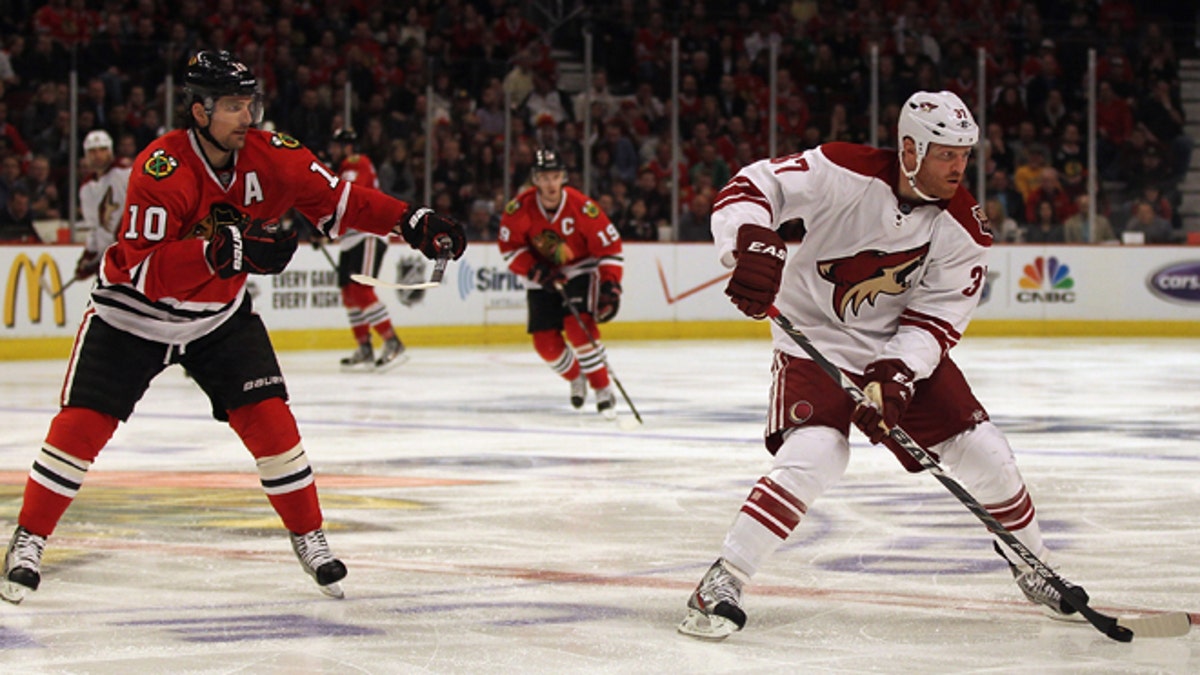
(Photo by Jonathan Daniel/Getty Images) (2012 Getty Images)
– The 2012-13 hockey season is in jeopardy.
Right around the time Sergio Martínez was being declared the middleweight champion over Julio César Chávez Jr. on Saturday night, NHL owners locked out players after the two sides were unable to reach a new collective bargaining agreement.
“No NHL? Whatever will be we do?” you might be saying sarcastically to yourself. Let’s be honest. Hockey isn’t high on the radar of most Latino sports fans.
The league has made some efforts to reach minority demographics at the grassroots and youth level, but hasn’t bothered to invest in Hispanic marketing initiatives the way every other major professional sports league in the country has.
Because of this disconnect, it is easy to shrug off the NHL’s labor woes as just another instance of rich players and super rich owners arguing over who should get richer faster.
After all, sports fans are accustomed to labor-related work stoppages by now. The current hockey lockout marks the third lockout in professional sports in the last 14 months.
The National Football League struggled through its own lockout last summer, but the league and its players managed to reach an accord far enough in advance so that the 2011 season could be saved.
The NBA played a shortened 2011-12 schedule after a four-month lockout. As a result, the season tipped off on Christmas Day instead of in late October. The NBA lost millions in revenue – Forbes estimated an $800 million loss – and impacted more than just players, coaches and owners.
There was a noticeable trickle-down effect all the way to arena employees. No games played means no games for people who make their livelihoods in the service industry.
And that’s where Hispanics will feel the impact of a lockout. The number of Latino NHL fans might be negligible. The number of Hispanic workers who staff the arenas where these professional sports teams play -- especially in markets with larger Hispanic workforces like Los Angeles, Phoenix, Dallas and Miami -- is not.
Fewer games mean fewer opportunities to work at a time when many Americans, particularly in the lower income brackets, already are struggling financially.
The 2012-13 NHL season was scheduled to open on Oct. 11, and the league hasn’t canceled any games yet. But considering the two sides – the league and the players’ association seem in no rush to sit down at the negotiating table, a long lockout looks likely.
The thought of the NHL cancelling the entire season like it did in 2004-05 isn’t inconceivable. Clearly, the impact of losing an entire year’s worth revenue and time in players’ careers lost wasn’t significant enough for the league to find a way to prevent another work stoppage.
According to the Associated Press, most NHL teams appear to be financially stable. Unfortunately, the same can’t necessarily be said for all of the workers whose livelihoods in part depend on 41 home hockey games a year.
Maria Burns Ortiz is a freelance sports journalist, chair of the National Association of Hispanic Journalists' Sports Task Force, and a regular contributor to Fox News Latino. Follow her on Twitter: @BurnsOrtiz
Follow us on twitter.com/foxnewslatino
Like us at facebook.com/foxnewslatino
